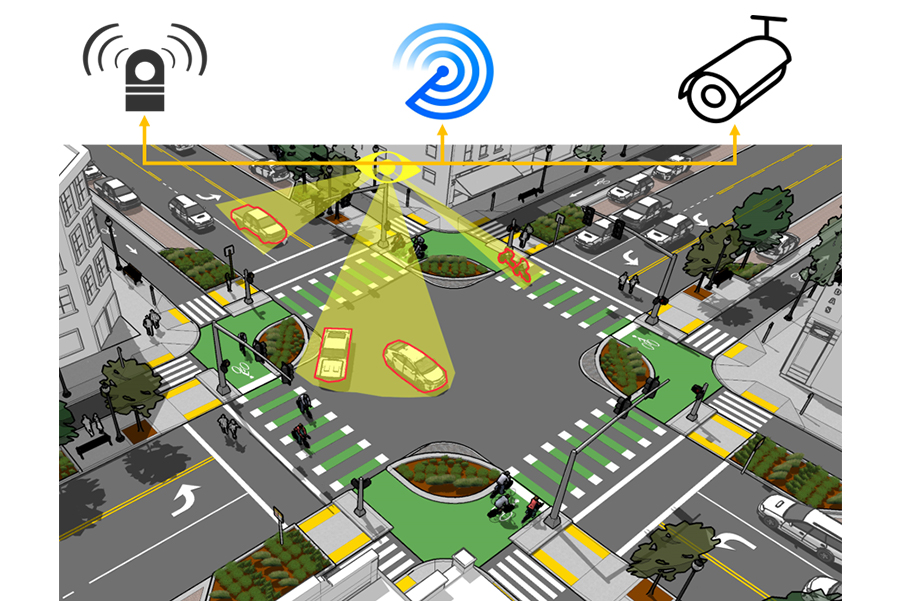CE’s Feng is PI on CAV safety project through USDOT
Yiheng Feng, assistant professor in the Lyles School of Civil Engineering, is Purdue’s principal investigator. His team will work with the University of Michigan Transportation Research Institute (UMTRI), which is heading up the project, and other industrial partners to study, develop and deploy new technology to four arterial corridors in the City of Ann Arbor, Mich.

The funding is provided through the USDOT’s Federal Highway Administration, with corporate partners contributing an additional $10M of in-kind funding.
Intersections will be fitted with cameras, radar and infrared sensors in order to capture what is moving in the area, at what speed and in what direction —everything from cars to pedestrians. That information can be instantaneously sent to connected vehicles in the vicinity, triggering onboard warnings when cars are in dangerous situations.
In addition to improving safety, the project also is designed to provide low-cost proof of the viability of CAVs.
“It is a highly important and timely research and deployment effort, which can greatly enhance the overall safety, mobility and sustainability of the urban transportation system,” Feng said. “I am very excited to have this opportunity to work on this high-profile project and provide my expertise regarding CAV-based traffic control and management.”
The Purdue team will be responsible for developing core algorithms such as sensor data fusion, traffic state estimation and signal optimization that enable intelligent traffic control, Feng explained. Team members also will work with industrial partners in planning, deploying and testing the developed algorithms at the smart intersection locations.
“The smart intersection project addresses some major obstacles in the large-scale deployment of CAVs and smart transportation infrastructure, including sensing, communication and decision making,” Feng said. “The project will enable a wide range of CAV-based applications such as dynamic signal optimization, transit signal priority and vulnerable road user protection.”
University of Michigan will directly receive $3.8M in funding and administer the remaining $6.2M to subcontractors.
Other public and private partners for the project are Ford, Toyota, Qualcomm, the City of Ann Arbor, Continental, Iteris, WSP, P3Mobility and Econolite.
For more on the Purdue Engineering Initiative in Autonomous and Connected Systems
Source: Michigan News "$9.95M for ‘smart intersections’ across Ann Arbor"
